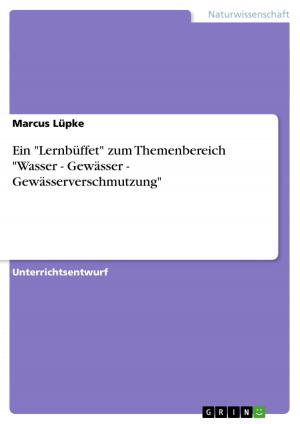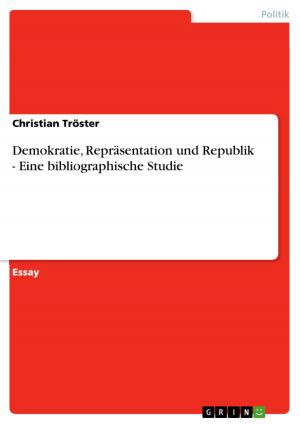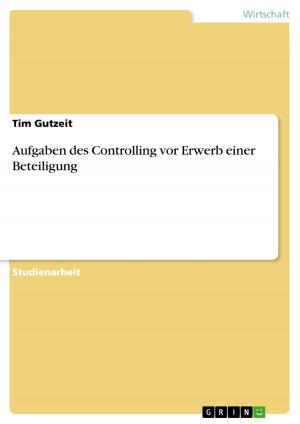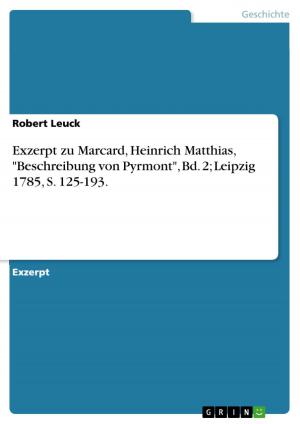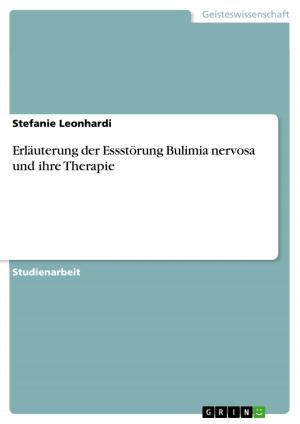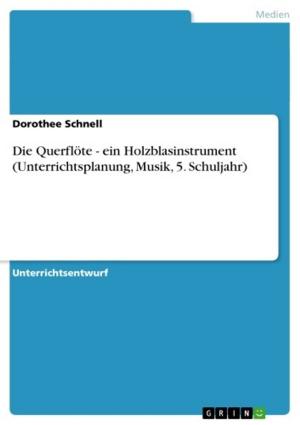The European Court of Human Rights
The work of the 'Strasbourg machinery' exemplified by selected cases
Nonfiction, Reference & Language, Law, International| Author: | Sarah Maringele | ISBN: | 9783656574866 |
| Publisher: | GRIN Verlag | Publication: | January 16, 2014 |
| Imprint: | GRIN Verlag | Language: | English |
| Author: | Sarah Maringele |
| ISBN: | 9783656574866 |
| Publisher: | GRIN Verlag |
| Publication: | January 16, 2014 |
| Imprint: | GRIN Verlag |
| Language: | English |
Diploma Thesis from the year 2014 in the subject Law - European and International Law, Intellectual Properties, grade: Befriedigend, University of Linz, language: English, abstract: Preface December 1948 is a remarkable date in the history of human rights law. It was the birth of Human Rights Law. Without exception, human rights belong to every single human being. The eighth secretary General Ban Ki-moon clearly found an adequate description to illustrate the significance of human rights while giving a speech at the 2011 Human Rights Day. Besides the significance of their existence he focused on their constant development and practicable usage which requires all the nations to exercise human rights. His speech can be put in one significant sentence. 'But unless we know them, unless we demand they be respected, and unless we defend our right -- and the right of others -- to exercise them, they will be just words in a decades-old document.' So this led to a few questions: Now, as we happen to have Human Rights Law in Europe what are the consequences regarding the jurisprudence and the legal practice in general? Further on, what are the judicial consequences in respect of violence against women? How about the acquaintance within European courts especially the European Court of Human Rights Law? Did it remain the same or are remarkable changes and developments observable? Did the development in Europe force 'us' to accommodate the understanding and meaning of what was once essential but in a completely different way? The main focus within this work basis on the case-law of the ECtHR in order to reveal the process, development, changes and reasonings of the Court, specifically in respect of the application of the principles of interpretation. The case analyze will cover general state of affairs, e.g.: environmental issues, gender based circumstances, press related matters, physical and psychological violence in general, etc. Moreover, regarding violence, a few cases in Section Five shall illustrate the judicial approach relating to violence against women in specific; especially, since the latest violent incidents in 2013, for example in India South-America but also in Eastern Europe, revealed that violence against women is a disastrous, unsolved and widespread matter.
Sarah Maringele is born in Feldkirch (Vorarlberg/Austria) in 1986. As a student of the law department at the Johannes Kepler University Linz she focused on Human Rights Law as well as Legal gender studies and diversity. During the time at the JKU, she completed an exchange program at the National Taiwan University and the Chinese Language Division Centre (Taipei/R.O.C.), and at the Paris-Lodron University Salzburg. After she has been awarded a Magistra iura, she currently is working on her dissertation, emphasising on International Procedural Law in conjunction with Individual complaint procedure mechanisms. Several internships offered the possibility to optimise the experiences and qualifications in the field of International Law, specifically in the sector of Human Rights Law; e.g.: Internship at the solicitor´s office Schwarzinger&partners (Wels), the Austrian Institute for Human Rights (Österreichisches Institut für Menschenrechte/Salzburg), the Austrian League for Human Rights (Österreichische LIGA/Vienna). She also has been working for the District Court (Bezirksgericht Innere Stadt/Vienna) and the Public Prosecutor's Office (Korneuburg). Moreover, she participated in interdisciplinary research work at the Liechtenstein Institute (Bendern/Liechtenstein), and worked for the Office of the United Nations High Commissioner for Human Rights in Geneva (OHCHR). During her time with the OHCHR, Ms. Maringele worked closely with the Human Rights Council branch, and particularly with the Human Rights Council Complaint Procedure Unit. Currently, Ms. Maringele is working with the Viennese law firm Gradwohl em.&Machac, who are experts in the field of criminal law, in particular, narcotic law, and have been nominated among the Top 3 criminal law attorneys in Austria according to Format law firm ranking 2016.
Diploma Thesis from the year 2014 in the subject Law - European and International Law, Intellectual Properties, grade: Befriedigend, University of Linz, language: English, abstract: Preface December 1948 is a remarkable date in the history of human rights law. It was the birth of Human Rights Law. Without exception, human rights belong to every single human being. The eighth secretary General Ban Ki-moon clearly found an adequate description to illustrate the significance of human rights while giving a speech at the 2011 Human Rights Day. Besides the significance of their existence he focused on their constant development and practicable usage which requires all the nations to exercise human rights. His speech can be put in one significant sentence. 'But unless we know them, unless we demand they be respected, and unless we defend our right -- and the right of others -- to exercise them, they will be just words in a decades-old document.' So this led to a few questions: Now, as we happen to have Human Rights Law in Europe what are the consequences regarding the jurisprudence and the legal practice in general? Further on, what are the judicial consequences in respect of violence against women? How about the acquaintance within European courts especially the European Court of Human Rights Law? Did it remain the same or are remarkable changes and developments observable? Did the development in Europe force 'us' to accommodate the understanding and meaning of what was once essential but in a completely different way? The main focus within this work basis on the case-law of the ECtHR in order to reveal the process, development, changes and reasonings of the Court, specifically in respect of the application of the principles of interpretation. The case analyze will cover general state of affairs, e.g.: environmental issues, gender based circumstances, press related matters, physical and psychological violence in general, etc. Moreover, regarding violence, a few cases in Section Five shall illustrate the judicial approach relating to violence against women in specific; especially, since the latest violent incidents in 2013, for example in India South-America but also in Eastern Europe, revealed that violence against women is a disastrous, unsolved and widespread matter.
Sarah Maringele is born in Feldkirch (Vorarlberg/Austria) in 1986. As a student of the law department at the Johannes Kepler University Linz she focused on Human Rights Law as well as Legal gender studies and diversity. During the time at the JKU, she completed an exchange program at the National Taiwan University and the Chinese Language Division Centre (Taipei/R.O.C.), and at the Paris-Lodron University Salzburg. After she has been awarded a Magistra iura, she currently is working on her dissertation, emphasising on International Procedural Law in conjunction with Individual complaint procedure mechanisms. Several internships offered the possibility to optimise the experiences and qualifications in the field of International Law, specifically in the sector of Human Rights Law; e.g.: Internship at the solicitor´s office Schwarzinger&partners (Wels), the Austrian Institute for Human Rights (Österreichisches Institut für Menschenrechte/Salzburg), the Austrian League for Human Rights (Österreichische LIGA/Vienna). She also has been working for the District Court (Bezirksgericht Innere Stadt/Vienna) and the Public Prosecutor's Office (Korneuburg). Moreover, she participated in interdisciplinary research work at the Liechtenstein Institute (Bendern/Liechtenstein), and worked for the Office of the United Nations High Commissioner for Human Rights in Geneva (OHCHR). During her time with the OHCHR, Ms. Maringele worked closely with the Human Rights Council branch, and particularly with the Human Rights Council Complaint Procedure Unit. Currently, Ms. Maringele is working with the Viennese law firm Gradwohl em.&Machac, who are experts in the field of criminal law, in particular, narcotic law, and have been nominated among the Top 3 criminal law attorneys in Austria according to Format law firm ranking 2016.

